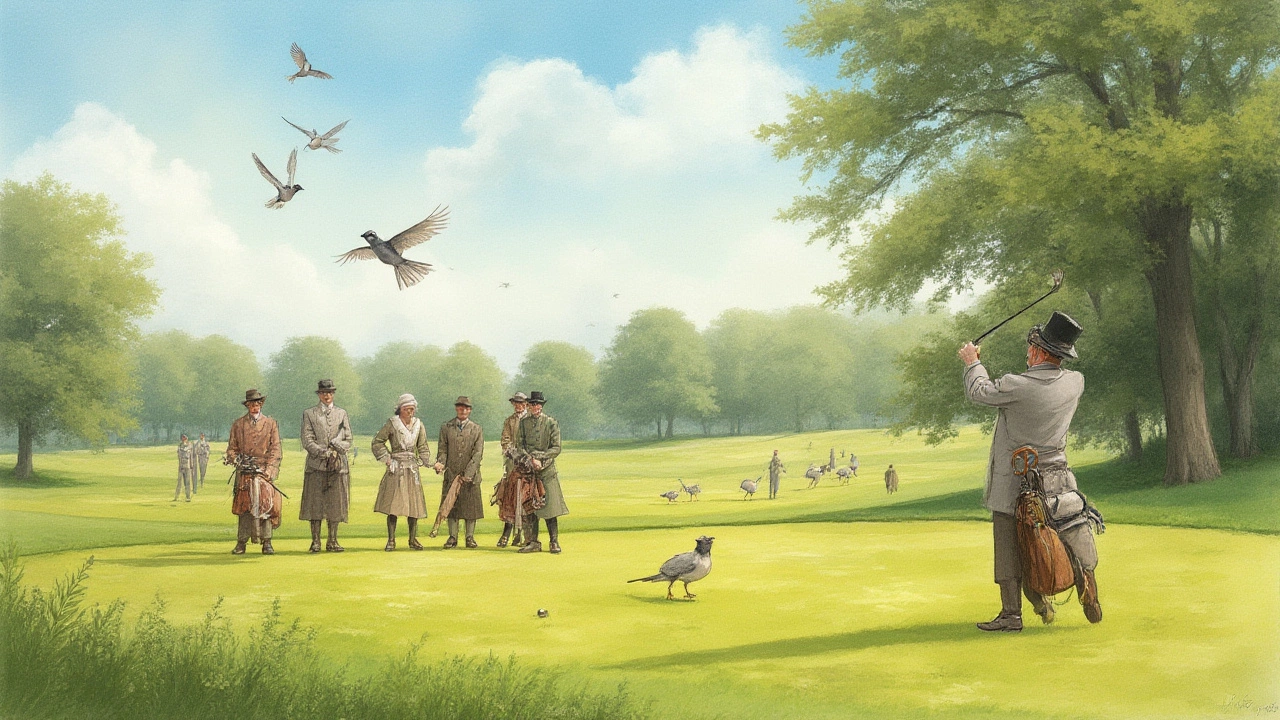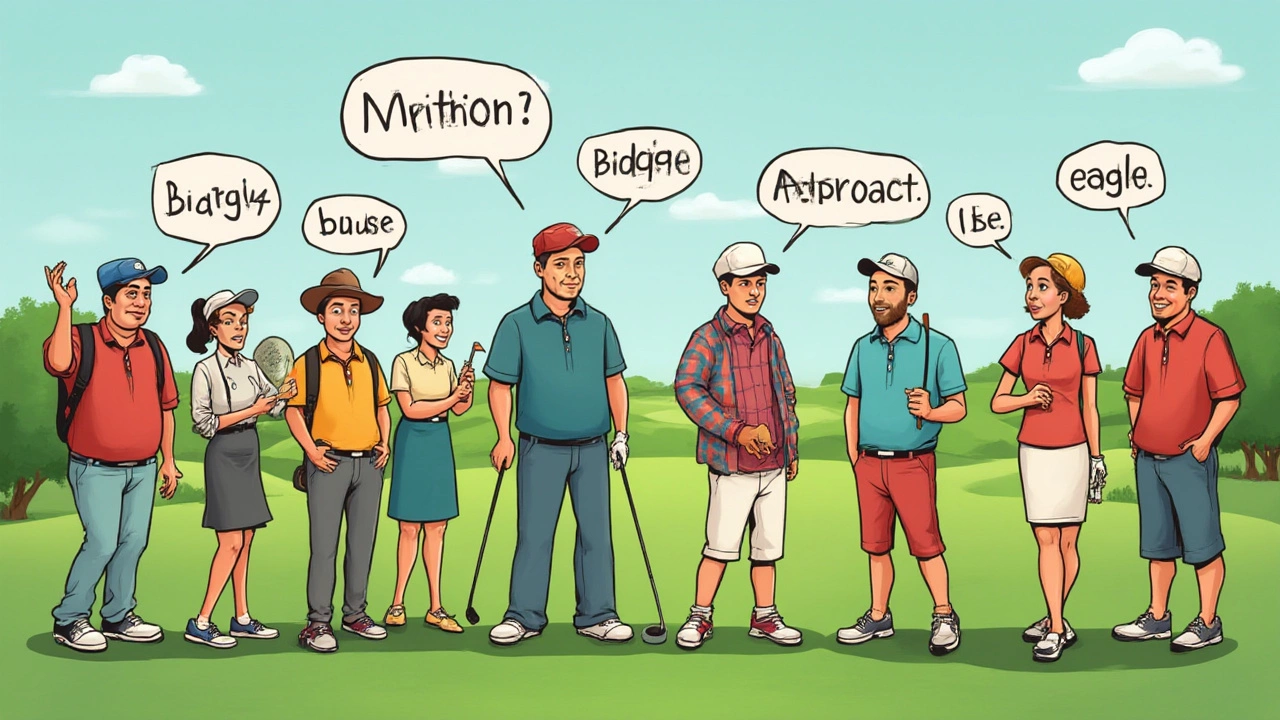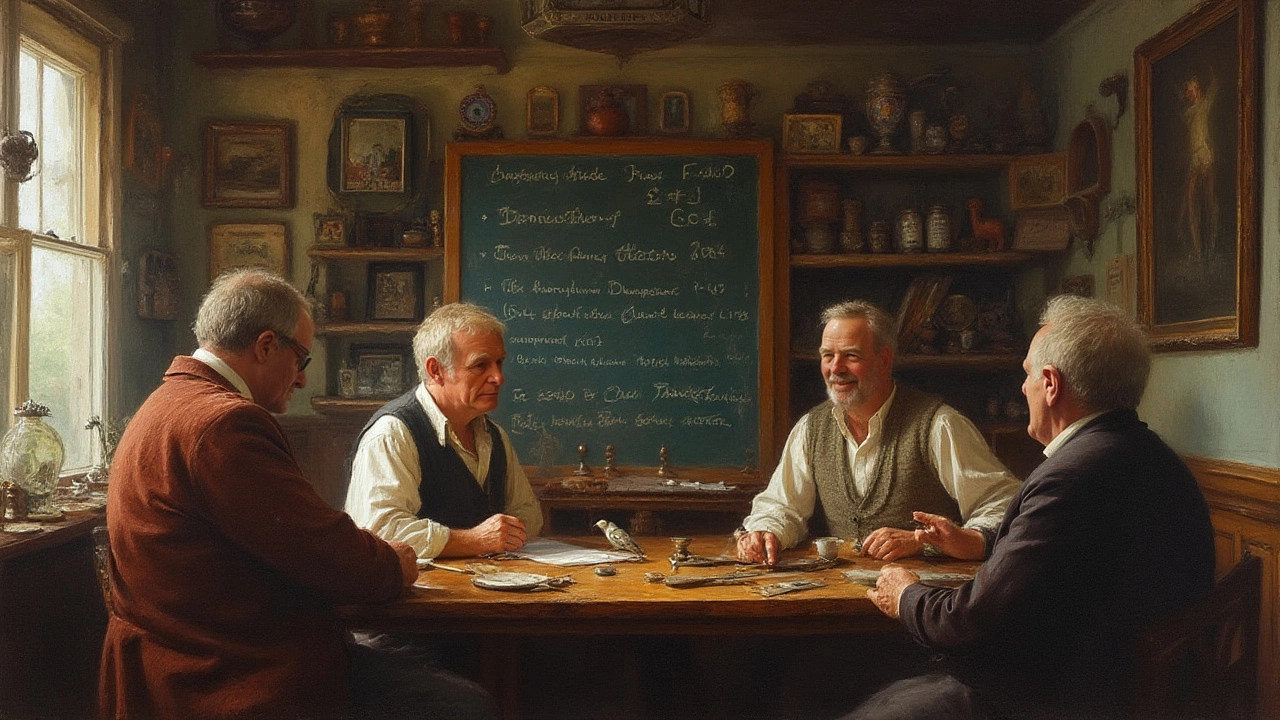Why Is a Birdie Called a Birdie in Golf? Golf Scoring History and Fun Facts

You hear it all the time during golf broadcasts or at your local course: someone sinks a putt and their partners all cheer, “That’s a birdie!” But why do golfers call it a birdie? Of all the ways to name a score that’s one stroke under par, why did a term straight out of an aviary land right in golf’s dictionary? Let’s peel away centuries of tradition and see how a feathered creature became one of the most iconic words in the game.
The Surprising Origin of ‘Birdie’ in Golf
For something that’s now woven into every golf announcer’s vocabulary, the backstory is actually pretty fun—and surprisingly recent. The word ‘birdie’ didn’t even exist in golf until the very tail end of the 1800s. It all started at the Atlantic City Country Club in New Jersey, in 1903, during a casual round among friends. One player, Ab Smith, hit a particularly good shot on a par-four hole. To say it was impressive wouldn’t do it justice: the ball soared, rolled, and landed close enough for him to sink the next putt. Smith supposedly exclaimed, “That was a bird of a shot!” Back then, ‘bird’ was 1890s American slang for something cool or excellent — think of how we say ‘that’s sweet!’ today. His friends started using the word to refer to a score of one under par, but with a cutesy twist: ‘birdie.’ That tiny bit of locker-room lingo soon spread across the country and jumped right into golf’s formal rules.
Golfers have a love affair with oddball lingo, but ‘birdie’ is special because we know exactly who said it, where it happened, and why. Check out the Atlantic City Country Club’s website even today—they claim their spot as the birthplace of the birdie, right down to a historical marker. Fast-forward a short while and you start seeing the word in British golf magazines, then the rest of the world picks it up. The term has never looked back since. So, that catchy golf size-brag has been around for just over 120 years and has a totally American origin. How’s that for specificity?
Golf Scoring Terms: Why Birds Rule the Roost
Once ‘birdie’ made its flight across the Atlantic, golf scoring hit the animal kingdom full throttle. It’s not just birdies; eagles, albatrosses, and even the mythical condor all make appearances on a golfer’s dream scorecard. Why birds? Maybe it’s about ‘flying high’—hitting a score that feels above the clouds. Or maybe those early 1900s Americans just liked a theme. Sinking a putt for one under par is a birdie, two under par is an eagle (a big, impressive bird), and three under is an albatross—one of the rarest birds, just like nabbing such a score.
Here’s how it all stacks up, in a handy golf terms table:
| Golf Term | Meaning | Origin Year | Chance on a Par-5 |
|---|---|---|---|
| Birdie | 1 under par | 1903 | About 20-21% for PGA pros |
| Eagle | 2 under par | 1903-1910 | Less than 1% for regular golfers |
| Albatross (Double Eagle) | 3 under par | 1929 or earlier | 1 in a million for amateurs |
| Condor | 4 under par | Modern, not official | Only 6 recorded ever |
That spirit of playfulness is unique to golf. Having a ‘birdie’ isn’t just a measure of skill; it’s a badge of honor, a story to tell over drinks, and a break from golf’s centuries-old seriousness. It also happens way more often than you might guess: on the PGA Tour, players make a birdie almost once every five holes. So next time you land a birdie, remember, you’re part of a club started by some New Jersey golf buddies more than a century ago. Pretty wild, right?

The Science Behind Birdies: Is It Really That Hard?
Getting a birdie feels magical, but how tough is it really? For everyday golfers, grabbing a birdie (that is, shooting a score of one under par on a hole) is a big deal and doesn’t happen all that often. According to the National Golf Foundation, the average male golfer scores about 16 over par on an 18-hole course. For most women, it’s closer to 28 over. That means the typical golfer isn’t scoring a birdie every round—instead, most holes will be bogeys or worse. Whereas pro golfers, especially on the PGA Tour, rack up birdies in bunches. Rory McIlroy, one of the most aggressive scorers out there, averaged more than 4.2 birdies per round in 2023. At the recreational level, just making one or two birdies in a round is cause to celebrate.
What helps nab a birdie? Skill and distance are obvious, but there’s a lot more. Course conditions, mental focus, knowing how to play each hole, and sometimes, just getting lucky with a bounce off the fringe. Plus, modern equipment, like fitted drivers and softer balls, helps players aim for the flagstick rather than just for the green. Pair that with data-driven advice from GPS apps and a little course know-how, and you’ll see more amateurs chasing down that elusive under-par shot.
One sweet tip: try to play the holes marked as ‘Stroke Index 17’ or ‘18’ extra smart. These are usually among the easiest on any course, so your chance for a birdie is higher there. And don’t get psyched out trying to force one—sometimes the best birdies come unexpectedly, after a safe tee shot and a clutch putt.
Birdies Beyond Golf: Where the Term Flew Next
‘Birdie’ escaped the golf course a long time ago—it’s tucked into daily life, business lingo, even kids’ miniature golf games. If you ever hear someone in a business meeting say, “We nailed that project, that was a real birdie!” they’re reaching back to Ab Smith and his friends in 1903. Mini-golf courses and those wild putting competitions on TV use ‘birdie’ just as much as the classic links in Scotland. Even non-golfers know it’s code for something done ‘just right’ or a small, satisfying win.
Other sports didn’t adopt the ‘birdie’ tag for scoring, but they did for objects—think badminton, where the shuttlecock is called a birdie. That goes back to the 19th-century tradition of making shuttlecocks out of feathers. Badminton birdies and golf birdies are unrelated, but the imagery of something quick, agile, and airborne isn’t lost on anyone. If you’re looking to impress your friends, drop the fact that both ‘birdie’ uses appear in English-language sources over a hundred years old, and both probably were never meant to become universal sports slang. Funny how language works, right?
There’s even a handful of non-sports uses. In British slang, ‘doing a birdie’ can mean getting away with a little trick, or just feeling lucky. Language doesn’t always follow rules; sometimes it follows what’s fun to say.

Tried-and-True Tips for Scoring More Birdies
If you’re itching to add more birdies to your scorecard, you don’t need a magic formula—just some practical advice that even the pros swear by. Birdies aren’t just for the Tiger Woods types; regular golfers land them with the right approach. First, get to know your own distances. Most amateurs overestimate how far they can hit a 7-iron but underestimate their chance of getting on the green safely. Honest club selection can save you from shooting for a buried pin and ending up in the bunker.
- Take your medicine: Don’t always attack the flag. Play for the center of the green when you don’t have a perfect lie. It keeps you in play for that birdie putt instead of scrambling for a double bogey.
- Practice lag putting: This won’t land birdies on its own, but you’ll avoid three-putts, and occasionally you’ll drain a long one for a surprise birdie.
- Choose your battles: On short par 4s or reachable par 5s, lay up to a comfortable number. If your wedge game is sharp from 90 yards, make that your target. Birdies love a reliable pitch shot over a risky full-send driver.
- Use modern tools: Apps like Arccos or Shot Scope track which holes you birdie most and where you’re missing. Let data help you spot patterns—maybe you birdie more par 3s than you realize.
- Stay patient: Birdies love calm minds. Most fall when you’re relaxed and focused, not when you’re pressing. Play world-class golf course architect Pete Dye’s advice: “Golf is not a game of perfect.”
It doesn’t hurt to hope for one last roll of the dice, either. How many birdie stories start, “I wasn’t even trying that hard, but then I hit this shot…”? Whether you’re chasing your first birdie or your fiftieth, remember where the word comes from—a happy accident, a bit of creative slang, and some friends just having fun hundreds of miles from golf’s old home in Scotland. ‘Birdie’ is about the little victories, and every golfer, pro or not, gets their moment at the top of the leaderboard—even if it’s just for one hole.
